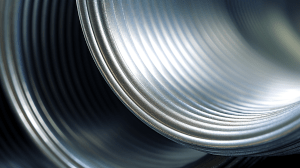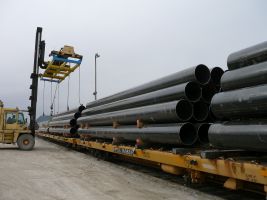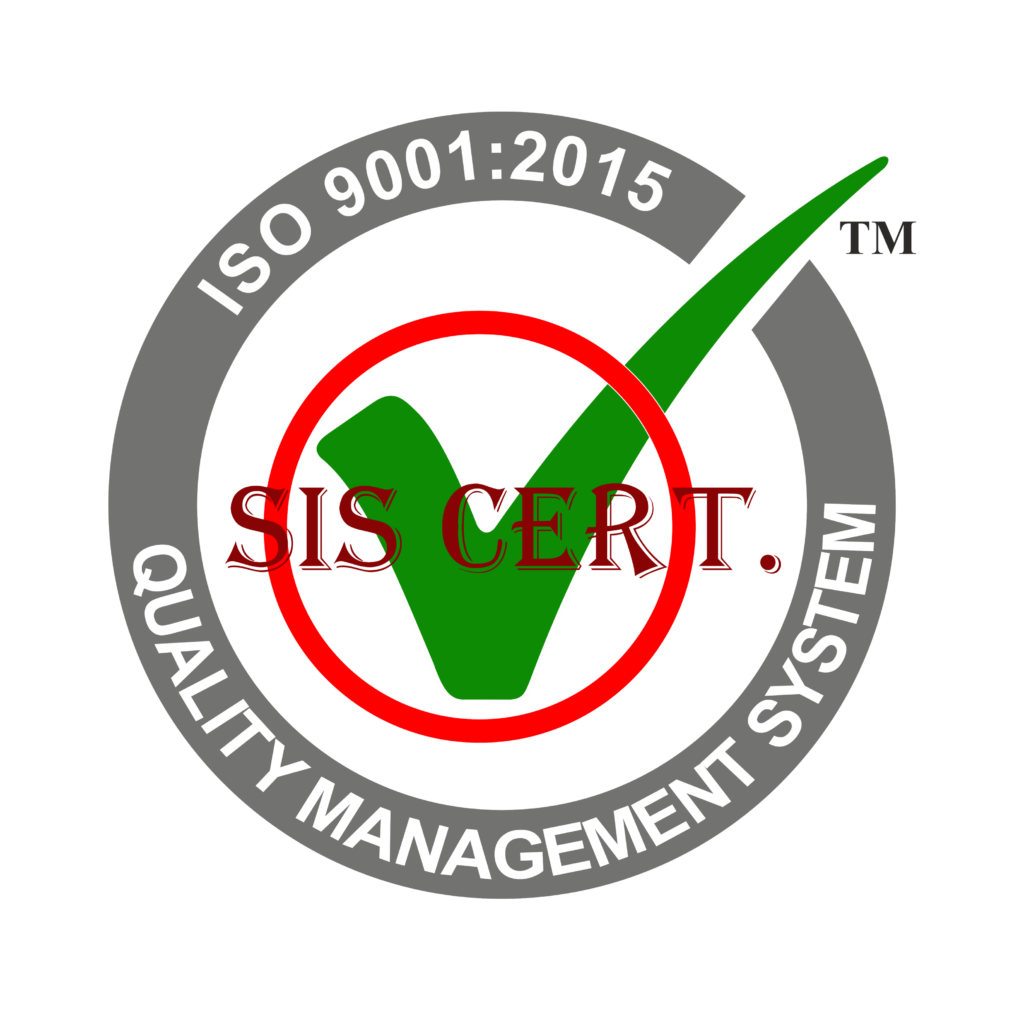Custom steel tube is a versatile and reliable material used in a variety of applications. From construction to automotive to industrial projects, custom steel tube is a durable and strong material with a wide range of applications.
Metal Special is a family-owned business that has been in the steel business since 2004. We strive to provide our customers with not only a quality product but also exceptional customer service. Our experienced team of professionals is dedicated to meeting and exceeding your custom steel tube needs.

Key Takeaways
- Custom steel tube is designed for specific requirements and applications.
- Custom steel tube offers advantages such as increased strength and corrosion resistance.
- The cost of custom steel tubing is typically higher than standard steel tube.
- Custom steel tube comes in various types such as mechanical steel tubing, hydraulic steel tubing, structural steel tubing, carbon steel tubing, and alloy steel tubing.
Custom Steel tube Vs standard steel tube
The primary difference between custom steel tube and standard steel tube lies in their respective levels of customization.
Custom steel tube is designed to meet specific requirements and applications, while standard steel tubes are typically manufactured for more general purposes.
Custom steel tube offers advantages such as increased strength, corrosion resistance, and design flexibility.
The custom steel tube manufacturing process involves far more steps than that of a standard steel tube, including the selection of specialty materials, custom sizing, and welding.
The cost of custom steel tubing is typically greater than that of standard steel tube due to the additional steps and materials used, but the long-term benefits such as greater durability and performance may outweigh this initial cost.
When it comes to customization, there are many options available ranging from material selection to custom lengths, shapes, and diameters.
Ultimately, the choice between custom steel tube and standard steel tube depends on the specific application and desired outcome.

Types of custom steel tube
Custom steel tube is available in various forms, including:
- Mechanical steel tubing
- Hydraulic steel tubing
- Structural steel tubing
- Carbon steel tubing
- Alloy steel tubing
Each type has its own unique characteristics and advantages, making them suitable for different applications.
MECHANICAL STEEL TUBING
Offering a wide range of mechanical steel tubing, Metal Special provides custom steel tube to meet the needs of its domestic and foreign partners. Manufactured to ASTM A513 and ASTM A519 specifications, our mechanical steel tubing types include Drawn Over Mandrel (DOM), Hot Rolled/Finished Seamless (HRS), Cold Drawn Seamless (CDS), Hot Rolled or Cold Rolled Electric Weld (HREW/CREW), and 4140 Alloy tubing, all available in various shapes and sizes.
Our customization options allow for applications in the automotive, aerospace, and construction industries. Cost considerations must be taken into account, with galvanizing options available upon request.
Future trends of mechanical steel tubing point towards increased customization and cost savings, making Metal Special’s custom steel tube a viable and cost-effective option for all your steel needs.

HYDRAULIC STEEL TUBING
Building upon our extensive selection of mechanical steel tubing, Metal Special now offers custom hydraulic steel tubes for a variety of applications.
Hydraulic steel tubing can provide superior strength, durability, and corrosion resistance compared to traditional steel piping. These tubes are constructed of two types of material grade: ST52.4 and ST37.4. The chemical composition of each grade varies, resulting in different tensile strengths and yield strengths.
The tubes are also NBK-processed for corrosion resistance and oiled inside and out. The installation process for hydraulic tubes involves cutting, bending, welding, and finally installing with the appropriate equipment. Additionally, the allowable working pressure of hydraulic steel tubes is calculated using DIN 2413 at normal temperature, with pressure reduction factors taken into consideration for elevated temperatures.
In conclusion, hydraulic steel tubing provides superior properties and advantages that make it ideal for a range of applications.
Structural steel tubing is the next topic that we will be discussing.
STRUCTURAL STEEL TUBING
Structural steel tubing is a type of custom steel tube that is designed to provide superior strength, durability, and corrosion resistance. It is widely accepted and used in the construction industry for various applications due to its high-quality standards, flexibility, and affordability. Common uses for structural steel tubing include scaffolding, fencing, handrails, and structural support.
When selecting the right type of structural steel tubing for a project, there are several factors to consider such as size, shape, and material. Advantages of custom steel tubing include its ability to provide a stronger structural frame, cost-effectiveness, and greater design flexibility. Benefits of using custom steel tubing in construction projects include increased safety, improved endurance, and enhanced aesthetic appeal.
| Applications | Advantages |
|---|---|
| Scaffolding | Stronger Structural Frame |
| Fencing | Cost-Effectiveness |
| Handrails | Greater Design Flexibility |
| Structural Support | Increased Safety |
| Improved Endurance | |
| Enhanced Aesthetic Appeal |
Carbon steel tubing
In addition to structural steel tubing, carbon steel tubing is also used as a type of custom steel tube due to its strength and durability. Carbon steel grades are available in various levels of alloy content, making them suitable for a variety of applications. The steel tube manufacturing process of carbon steel tubing typically involves electric resistance welding, cold drawn seamless, drawn-over-mandrel, and hydraulic.
Advantages of carbon steel tubing include its cost-effectiveness, improved weld quality, and higher strength. Carbon steel tube applications include automotive components, roll cages, high-speed pumping, and infrastructure columns.
Metal Supermarkets and other carbon steel tube suppliers provide quality customer service and products. With these advantages and suppliers available, carbon steel tubing is a great option for custom steel tube.

Alloy steel tubing
Continuing from carbon steel tubing, alloy steel tubing can also be used as a type of custom steel tube for its strength and durability. Alloy steel is a type of steel containing a mixture of elements such as nickel, chromium, manganese, and molybdenum. These properties give it excellent tensile strength and toughness, a high strength to weight ratio, and the ability to be heat treated to a broad range of strengths and hardnesses.
Alloy steel is also machinable and has a medium carbon content, making it suitable for many machined parts and wear parts. ASTM A513 and ASTM A519 industry standards are followed for the manufacturing process. In addition, a wide range of sizes can be produced due to the rolled bar and pierced or cold drawn process.
With these features, alloy steel tubing is a great option for applications such as automotive and transportation, aircraft frames, bicycle frames, shafts, collars, roll cages, control arms, and A-arms.
Stainless steel tubing
Weighing up the benefits of stainless steel tubing, it is an ideal choice for custom steel tube applications. It is composed of iron and carbon, and contains at least 10.5% chromium as an alloying agent. It is also made up of elements such as silicon, manganese, nickel, titanium, aluminum, copper, nitrogen, phosphorous, selenium, and molybdenum.
Stainless steel tubing is measured by the OD and wall thickness, and different types have different measurement protocols. Hypodermic tubing is sized by the gauge of the outside and inside diameter, while fractional, metric, and square tubing is measured by OD and wall thickness.
Stainless steel square tubing is used for its added mechanical properties. Welding techniques, corrosion resistance, food industry applications, and advantages of seamless tubing are all factors to consider when selecting the right grade of stainless steel tubing.
With all its benefits, stainless steel tubing is an excellent option for custom steel tube applications, and is well suited to move on to the next topic about galvanized steel tubing.
Galvanized steel tubing
There are several types of galvanized steel tubing available for custom steel tube applications, each with its own unique characteristics.
Utilizing hot dipped zinc-rich galvanizing process, galvanized steel tubing provides rust-free protection for up to 30 years with comparable strength and a durable surface coating. With ASTM A500B and G90 Galvanized coating, galvanized steel tubing offers excellent advantages for applications such as welding and construction projects.
Maintenance is easy and the durability is reliable for many years, making it a popular choice.
Galvanized steel tubing is available in precut lengths, full mill lengths, or custom sizes at competitive pricing.

ID/OD tubing
Custom steel tube can be sized by either its inner diameter (ID) or outer diameter (OD). Manufacturing techniques for custom steel tube vary, but typically involve cutting, threading, bending, or welding.
ID tubing is often used in manufacturing due to its advantages, such as being more rigid, having a larger inner diameter, and being easier to install than OD tubing.
OD tubing is more commonly used for applications such as refrigerators, ice makers, and undercounter filters due to its size.
When choosing between ID and OD fittings, consider the specific application and pipe size. Thread sizes on fittings are based on the nominal size or inner diameter.
It is important to understand the difference between nominal size and actual measurement when measuring pipe fittings. DIY projects should ensure accurate measurement and selection of the correct tubing size.
Steel tube process
The steel tube process begins with the purchase and loading of steel.
This is followed by several stages, including edging, forming, cleaning, and heating.
Each stage is carefully executed to ensure the highest quality product.
Finally, the tube is sized and cut to its desired size and shape.
Throughout the entire process, close attention is paid to detail and quality control.
Double new line.
Steel Purchasing and Loading
For steel purchasing and loading, Metal Special follows a standardized five-step process to ensure the highest quality of custom steel tube.
First, we use advanced steel loading techniques to ensure the appropriate weight and size of the steel tube.
Second, we carefully calculate the weight of the steel tube and make any necessary adjustments.
Third, we use strict quality control protocols to ensure the highest quality of steel tube.
Fourth, we use the most reliable transportation methods to ensure that the steel tube is delivered on schedule.
Finally, we use a variety of purchasing strategies to ensure that we are able to purchase the highest quality steel tube at the most competitive prices.
All of these steps are essential to ensure that our customers receive the best possible custom steel tube.
Edging
To ensure a precise, professional finish, Metal Special uses a five-step edging process for its custom steel tube. This process involves grinding, deburring, cleaning, brushing, and polishing the steel tube. Each of these steps has distinct applications and benefits, which can be seen in the following table:
| Technique | Application | Benefits |
|---|---|---|
| Grinding | Removing burrs | Improves strength and performance |
| Deburring | Smoothing edges | Enhances aesthetics |
| Cleaning | Removing particles | Ensures surface is free of debris |
| Brushing | Adding shine | Helps protect against corrosion |
| Polishing | Finishing surface | Enhances visual appeal and performance |
The edging process improves the function and durability of custom steel tube, while also enhancing its appearance. Metal Special is committed to delivering the highest quality products with a superior finish.
Forming
Forming is an essential step in the process of creating custom steel tube, which requires precision and accuracy to ensure a quality product. Metal forming involves several techniques, such as tube fabrication, cutting, punching, forming, bending techniques, mandrel bending, roll bending, press bending, and tube shaping, flaring, swaging, beading.
Each of these processes must be carefully considered and applied in order to achieve the desired result. The forming processes used depend on the type and size of the steel tube, as well as the desired shape.
This can be a complex process that requires the skill of a professional to get right.
Cleaning and Heating
Continuing from the forming processes, cleaning and heating is an essential part of the custom steel tube process. There are a few cleaning methods that can be used, such as chemical and abrasive. Heat treatment is then used to create a desired microstructure. Surface preparation is also necessary prior to welding, as it helps to ensure good weld quality and corrosion prevention. The welding techniques used depend on the type of steel being worked on.
| Cleaning Methods | Heat Treatment |
|---|---|
| Chemical | Create desired microstructure |
| Abrasive | |
| Surface Preparation | Welding Techniques |
| ——————- | —————— |
| Ensure good weld quality | Depends on steel type |
| Corrosion Prevention | |
| ——————– |
Sizing/Cutting
Once the cleaning and heating steps are complete, the next step in the custom steel tube process is sizing and cutting. The process requires the use of precise sizing accuracy and cutting techniques, as well as careful material selection to ensure quality control. Cost considerations are also taken into account, with the goal of producing an economical product that meets the needs of the customer.
The sizing and cutting process includes:
- Design:
- Identifying the right materials for the job
- Selecting the most efficient cutting techniques
- Execution:
- Ensuring accuracy in sizing
- Cutting the steel to the desired size
- Applying quality control measures
Sizing and cutting requires careful consideration of accuracy, techniques, material selection, quality control, and cost considerations to ensure that the custom steel tube process is successful.
Preliminary Inspection
Building on the successful size and cutting of the steel tube, a preliminary inspection is next in the custom steel tube process. All dimensions must be checked for accuracy and the surface must be inspected to ensure quality.
Material composition and weld integrity must also be tested before proceeding. Non-destructive testing is performed to ascertain that the steel tube is able to withstand the desired loads and pressures.
The inspection process is essential to guarantee that the steel tube meets or exceeds the client’s specifications. All of these steps must be carefully followed to provide the customer with a reliable, high-quality product.
Finishing Process
Frequently, the finishing process of a custom steel tube is the final step in guaranteeing a reliable, high-quality product. This process may involve a variety of surface treatment techniques, such as polishing, coating, and corrosion prevention. To ensure the best possible results, it is important to consider the following elements:
- Surface Treatment: This involves smoothing the surface of the tube, as well as removing any impurities that can cause imperfections in the finished product.
- Polishing Techniques: Depending on the specific needs of the project, a variety of polishing techniques can be used to ensure a smooth finish.
- Coating Options: Different types of coatings can be used to provide additional protection to the tube, as well as improve its appearance.
- Corrosion Prevention: This is essential to ensure the longevity of the custom steel tube.
- Post-Finishing Inspection: Once the finishing process is complete, it is important to inspect the tube to confirm that it meets all quality standards.
The finishing process of a custom steel tube is essential to ensure the highest possible quality. After this process is complete, it is time to move on to the final inspection.
Final Inspection
Once all of the necessary steps have been completed, it is important to undertake a final inspection of the custom steel tube to ensure that desired results are achieved.
Quality assurance is critical to guarantee the dimensional accuracy, surface finish, and welding integrity of the tube. Inspectors must check that the material complies with the requirements of the specifications and that all safety regulations are met.
Additionally, packaging and shipping must be carefully monitored to guarantee the delivery of the custom steel tube to its intended destination.
The ultimate goal of any final inspection is to ensure that the customer receives a product that meets their requirements.
Custom Steel tube by industry
Custom Steel tube is an important component of many different industries. From Aerospace to Automotive and Biotech to Chemical and Chromatography. Each industry has its own unique requirements for custom steel tubes. These requirements must be met in order to ensure the highest quality and performance.
Aerospace steel tubes
Stainless steel tubes and pipes are frequently used in the aerospace industry due to their high strength, corrosion-resistant, and lightweight properties. The manufacturing process of these components is highly specialized, and the performance advantages are numerous. In aircraft engines, they are essential components for operating brakes, flaps, landing gear, and fire control mechanisms.
Customization options are available when it comes to stainless steel tubes and pipes, allowing for specific requirements to be met. Quality control measures are also of utmost importance, ensuring that the highest standards are met.
In addition, austenitic stainless steel 304 is used in various parts of an aircraft, including fuel engine pipes and structural components. It is nonmagnetic and corrosion-resistant, offering a high strength-to-weight ratio and superior temperature resistance.
Santosh Steel offers tailored solutions to meet client needs in the aerospace industry, providing high-quality stainless steel tubes and pipes. With two decades of experience, they are a reliable supplier for this industry.
Automotive custom tubes
For automotive applications, custom steel tubes are often used to ensure precise and efficient performance. They offer high strength, dimensional accuracy, and corrosion resistance, which leads to improved system performance. Customization options include seamless, welded, and DOM steel tubes, each of which has its own benefits.
Precision is a key factor for custom steel tubes, as small deviations can have serious consequences. Manufacturers are constantly innovating to improve production quality and reduce costs. Finally, these custom tubes are essential for fuel injection systems, hydraulic cylinders, shock absorbers, steering columns, and drive shafts. This makes custom steel tubes an indispensable part of the automotive industry. With these advancements, custom steel tubes are set to become even more important in the years to come.
Transitioning into the next section, biotech custom steel tubes offer a unique set of benefits for medical and scientific applications.
Biotech custom steel tubes
Biotech applications benefit from the use of custom steel tubes due to their corrosion resistance, cleanliness, strength, and rigidity. They can meet the sterilization requirements of sensitive bioprocessing applications and are widely used in the fabrication techniques of these applications.
Material selection is critical when it comes to custom steel tubes, as they must be able to withstand extreme conditions and resist corrosion. Different alloys are used for different applications, such as:
- Non-corrosive: Titanium, Nickel alloys, Zirconium alloys
- Corrosion resistant: Stainless steel alloys, Hastelloy alloys
- High-temperature resistant: Nickel alloys, Cobalt alloys
Custom steel tubes provide a safe and reliable solution for biotech applications, meeting all the necessary sterilization requirements while providing the necessary corrosion resistance and strength.
Chemical
Custom steel tubes are an essential part of chemical processing and petrochemical solutions, providing corrosion resistance, instrumentation, and alloy selection.
High nickel alloys are vital for successful acid production, ethylene production, derivatives, and organic and inorganic chloride processing.
316L is commonly used for primary instrumentation and analytical applications, while C276 and alloy 825 are recommended for tougher processes or heat exchangers.
Proper material selection is key to ensure safe and efficient production in the chemical industry. As such, it is essential to select the correct steel tube and alloy for the job to ensure corrosion resistance and maximum performance.
Chromatography
Building on the importance of proper material selection for corrosion resistance and performance in the chemical industry, custom steel tube is also essential for chromatography applications.
Chromatography is a technique used to separate and analyze components of a mixture, and is used in a variety of industries. There are many chromatography techniques, such as gas chromatography, liquid chromatography, size exclusion chromatography, and more.
The chromatography equipment used to perform these techniques must maintain a high level of durability and accuracy. Steel tubing is one of the most preferred materials for chromatography equipment as it is corrosion-resistant and can be custom designed for different applications.
Chromatography analysis can be done using different chromatography columns, which can also be made from steel tubing. Steel tubing is a great material for chromatography applications due to its strength, resistance to corrosion, and its ability to be customized.
Environmental
Furthermore, custom steel tube is essential for many industrial processes in order to reduce the environmental impact and ensure safety standards are met.
Manufacturers must initiate sustainability measures such as recycling initiatives, eco-friendly manufacturing processes, and carbon footprint reduction to guard against the dangers of pollution.
Ultimately, these measures can help to minimize the short and long-term environmental damage caused by the use of custom steel tube in industrial applications.
Additionally, manufacturers can benefit from energy-saving solutions such as the use of low-carbon steel alloys and renewable energy sources.
It is essential for manufacturers to remain aware of the environmental implications of their production processes in order to ensure a safe and sustainable future.
Heavy Equipment
Following the discussion of environmental implications, custom steel tube is also widely used in the production of heavy equipment. Its use is essential for maintenance, advancement, and safety. To ensure the environment is protected, cost effective solutions must be found.
For heavy equipment maintenance, custom steel tube provides strong and durable parts. Advancements in technology are also made possible with its use. Steel tube helps create safety measures for operating heavy equipment, such as stabilizers and shock absorbers. Furthermore, custom steel tube helps to reduce the environmental impact of heavy equipment usage. Cost effective solutions are found through the use of precision-made steel tube.
All of these features make custom steel tube a valuable resource for the production of heavy equipment. From here, we can move on to discuss the use of custom steel tube in laboratory equipment.
Laboratory Equipment
Custom steel tube is often utilized in laboratory equipment due to its durability, precision, and cost-effectiveness. When designing laboratory equipment, stainless steel tubing is often the material of choice due to its inert and easy-to-clean surfaces. Additionally, 316L (1.4404) stainless steel is preferred for its resistance to solvents and chlorides, while 304L (1.4301) stainless steel is suitable for mobility equipment.
Electropolishing can further enhance the sterile surface of stainless steel tubing for use in pharmaceutical manufacturing. Custom steel tubing is also often used in healthcare products due to its hygienic properties and corrosion resistance. Precision engineering is essential for laboratory equipment fabrication, and innovations in healthcare tubing offer a range of advantages.
The use of stainless steel in laboratory settings ensures precision, reliability, and low-maintenance costs.
Medical
Custom steel tube is widely used in the medical industry due to its strength and precision. Surgical instruments, endoscopic subassemblies, and other medical devices all depend on steel tubing for their successful creation and operation. There are several benefits to using steel tubing in medical applications, such as its ability to maintain tight tolerances for dimensions and end features. Additionally, innovations in medical steel tubing technology have allowed for increased control and customization of these components.
However, manufacturing custom steel tubes for medical use can be challenging, as the high level of precision required can be difficult to achieve. As such, companies must utilize the most advanced technologies to effectively produce these components.
Looking to the future, advances in medical steel tubing technology will continue to make these components more reliable and efficient. The introduction of newer materials, improved manufacturing processes, and other innovations will open up more possibilities for medical device design and production.
Military
Frequently, custom steel tube is used in military applications due to its strength, durability, and flexibility. Military grade steel is used to construct everything from armor to artillery to submarines and aircraft. It provides strong protection against weaponry and can be hardened to withstand massive impacts. MIL-A-46100 is typically used for shielding against intense projectiles, while MIL-A-12560 is used in defense technology and protection against explosives. MIL-A-46177 is a thinner grade used for shields, armor, and smaller combat vehicles.
Advancements in military steel technology have enabled manufacturers to build more efficient tube products. Challenges in manufacturing military steel tubes include the need to meet strict standards for quality and consistency. Military steel tube testing and quality control must be in place to ensure that the materials meet the required specifications.
Future prospects for military steel tube development are promising, especially with the invention of new materials and technologies. Steel continues to be an essential part of defense supplies in the United States, with applications stretching far beyond the military. Steel is a high-quality and economical choice for a wide range of applications, making it an invaluable part of the steel industry.
Pharmaceutical
Continuing the discussion on the utility of custom steel tubes, its importance in the pharmaceutical industry is paramount due to its ability to protect the integrity of medications and cosmetics.
It is essential for wholesalers and laboratories to have access to express delivery services for cut-to-length stainless steel tubes to operate their machines. The use of AISI 316 and 304 tubes ensures a cutting tolerance of +/- 2 mm and high-quality products.
It is also important to have stock available for replacement and to avoid interruption in the manufacturing process. AISI 316 stainless steel tubes are characterized by high resistance to pitting corrosion and temperatures of up to 300°C.
Work with expert suppliers who offer high-quality assurance is essential for the satisfaction of cosmetic, pharmaceutical, and chemical laboratories.
To ensure a successful transition into the next subtopic on ‘semiconductor’, it is important to consider the cutting quality, adequate guarantees of tolerance, and selection of an expert supplier.
Semiconductor
For the semiconductor industry, custom steel tubes offer a reliable, precise solution for high-precision machining and cutting. Steel is one of the most popular materials for semiconductor applications due to its strength and durability.
Custom steel tubes are a great solution for those seeking to take advantage of the latest advancements in semiconductor technology and materials. The latest trends in semiconductor manufacturing have made custom steel tubes more accessible and cost efficient for businesses.
Steel is an ideal material for semiconductor applications because it is strong, reliable, and cost effective. Custom steel tubes provide a reliable and precise solution for businesses seeking to take advantage of the latest advancements in semiconductor technology and materials.
With custom steel tubes, businesses can remain at the forefront of the semiconductor industry and take advantage of the latest advancements.
Frequently Asked Questions
What Are the Advantages of Using Custom Steel Tube Compared to Standard Steel Tube?
Standard steel tubes offer limited shapes, grades, and are often costly. Custom steel tube offers more cost benefits, corrosion resistance, weldability, and a wider range of shapes and steel grades that can be tailored to the needs of the customer.
What Are the Most Common Types of Custom Steel Tube?
The most common types of custom steel tube are formed using various forming techniques, cut with various cutting methods, welded with various welding techniques, treated with surface treatments, and engineered for dimensional accuracy.
What Are the Key Steps in the Steel Tube Manufacturing Process?
The steel tube manufacturing process involves selecting the appropriate raw materials, heat treating the material, choosing finishing options, applying welding techniques, and designing the desired structure. Careful attention to detail is essential to ensure success.
How Is Custom Steel Tube Used in Different Industries?
Steel tube is widely used in a variety of industries due to its durability, corrosion resistance, and ability to withstand stress testing. Custom steel tube is further enhanced with welding techniques and powder coating for extra strength. Its high durability rating makes it an ideal choice for many applications.
What Are the Advantages of Custom Steel Tube Over Other Materials?
Custom steel tubes offer cost-benefit analysis, strength benefits, customization possibilities, surface treatment, and corrosion resistance, making it a superior option compared to other materials. Its precision and durability make it a reliable choice for many applications.
Conclusion
Custom steel tube is a strong and reliable material used in a variety of industrial, automotive, and construction applications. It provides an advantage over standard steel tube due to its versatility and durability.
Metal Special is a leading provider of custom steel tube products and services, offering quality products at competitive prices. With a team of experienced professionals and exceptional customer service, Metal Special is an ideal source for custom steel tube needs.



